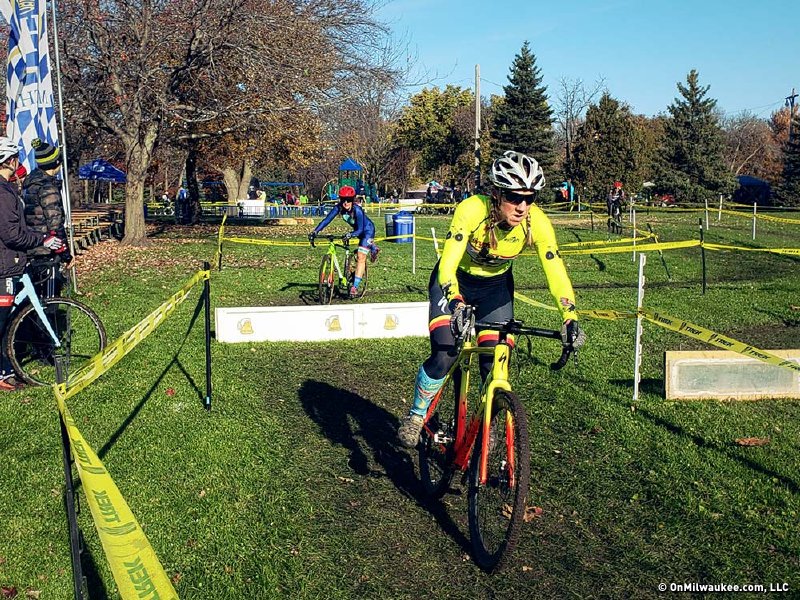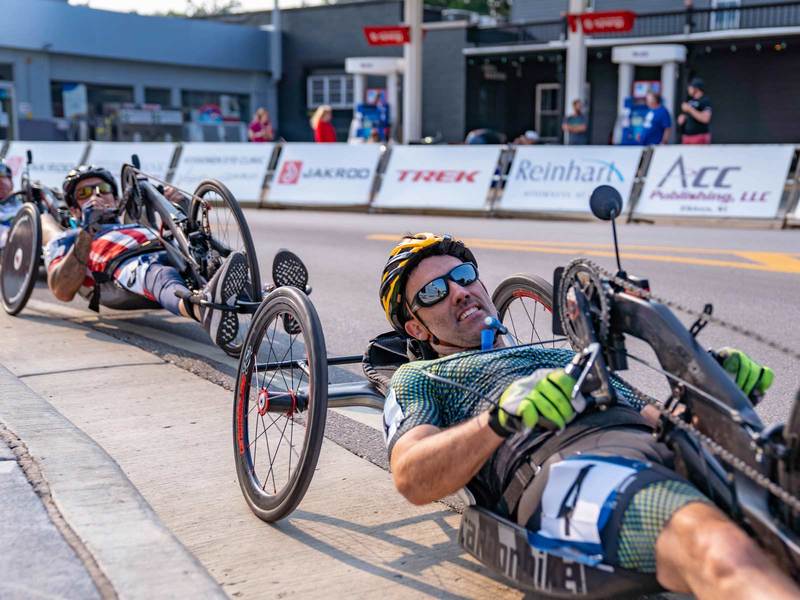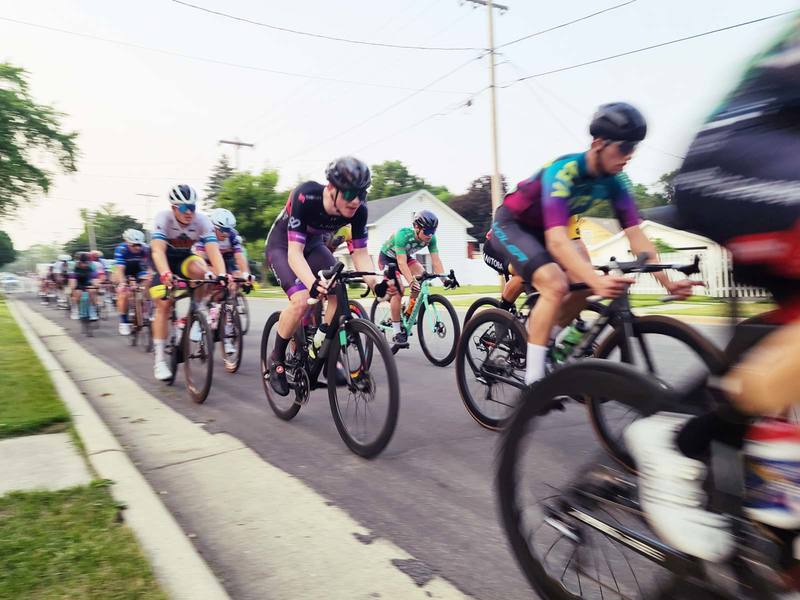Cyclocross is a challenging yet accessible cycle sport for people at all levels that sends riders around a closed, multi-terrain obstacle course. While this style of racing pushes participants to their limits, it is probably among the safer forms of racing; speeds are lower and riders aren't expected to ride in a massive bunch.
The good courses are peppered with obstacles that force racers to make choices about whether or not to get off the bike – steep hills, stair sets, mud, sand, barriers, flyovers and more. Amateur races are less than an hour long, but at a high effort, most people leave sufficiently satisfied.
OnMilwaukee is proud to sponsor the Palomino American Cyclocross team's race, GP Jo Van Deraffe, which takes place on Saturday, Nov. 17 at the Mitchell Park Domes. All first-timers can join the Cat 5 races, and all first-time women racers get free entry. There are also youth races, including a free 8-and-under cyclo-tots race.
I chatted with some women riders ahead of the event to find out how they found themselves in cyclocross and what compels them to line up at the start line in anticipation of suffering for the fun of it.
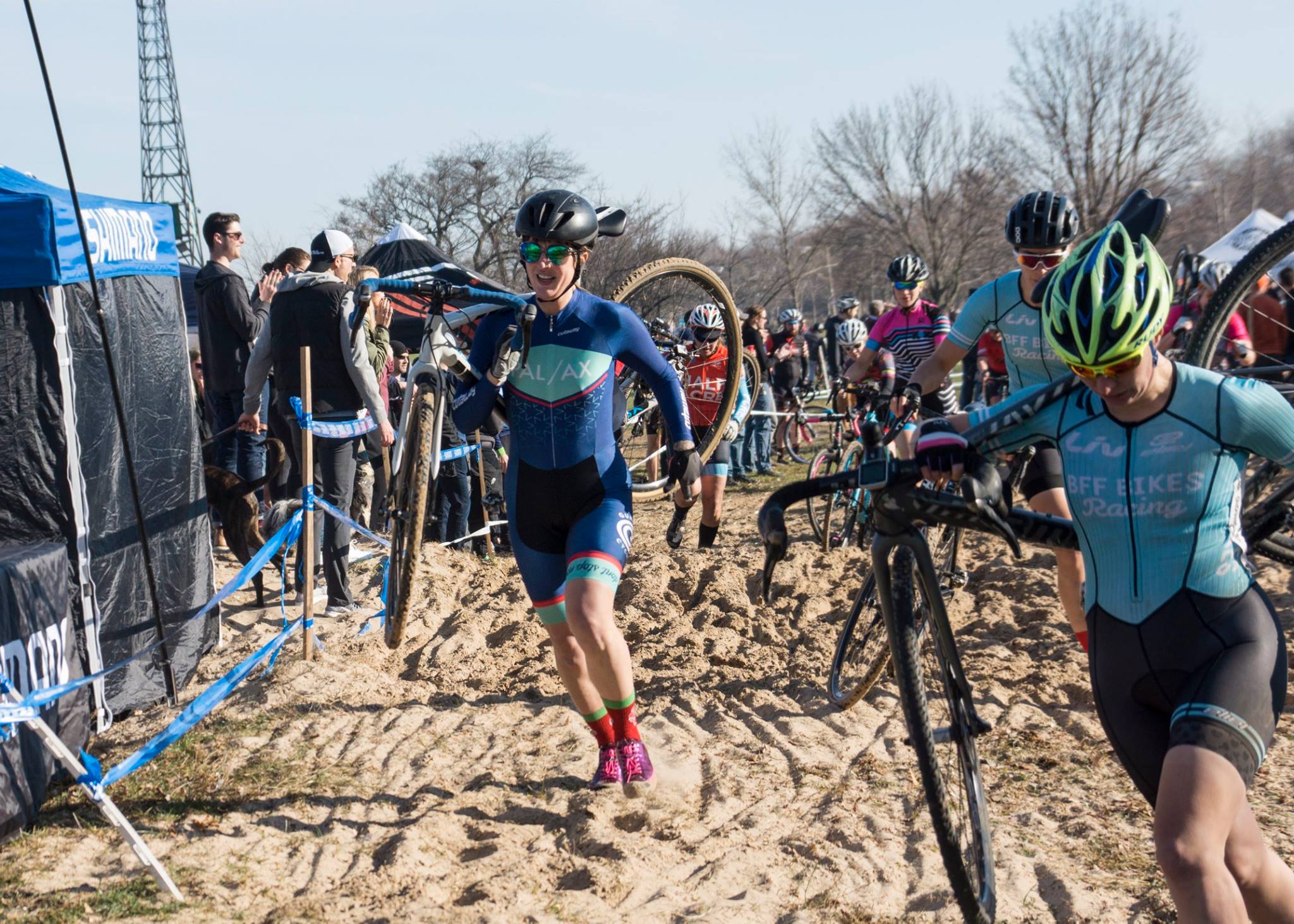
(PHOTO: Christian Walding)
Elizabeth Franczyk from Milwaukee found her way into the sport after a friend asked to accompany her to her first race.
"Neither of us had tried cyclocross before and it felt good to have another equally inexperienced person," she recalled. "I'm pretty sure Nicole and I nabbed the last and second to last spots in that race, but I was totally hooked. Everybody at the race ruled and I felt so welcome."
Olivia Cope from Madison felt a similarly warm and fuzzy feeling: "I wasn't really aware of cyclocross until I moved to Wisconsin, but a lot of my teammates and people I met at road races were always telling me, 'You should do cyclocross!' I am now one of those people who tells people that all the time."
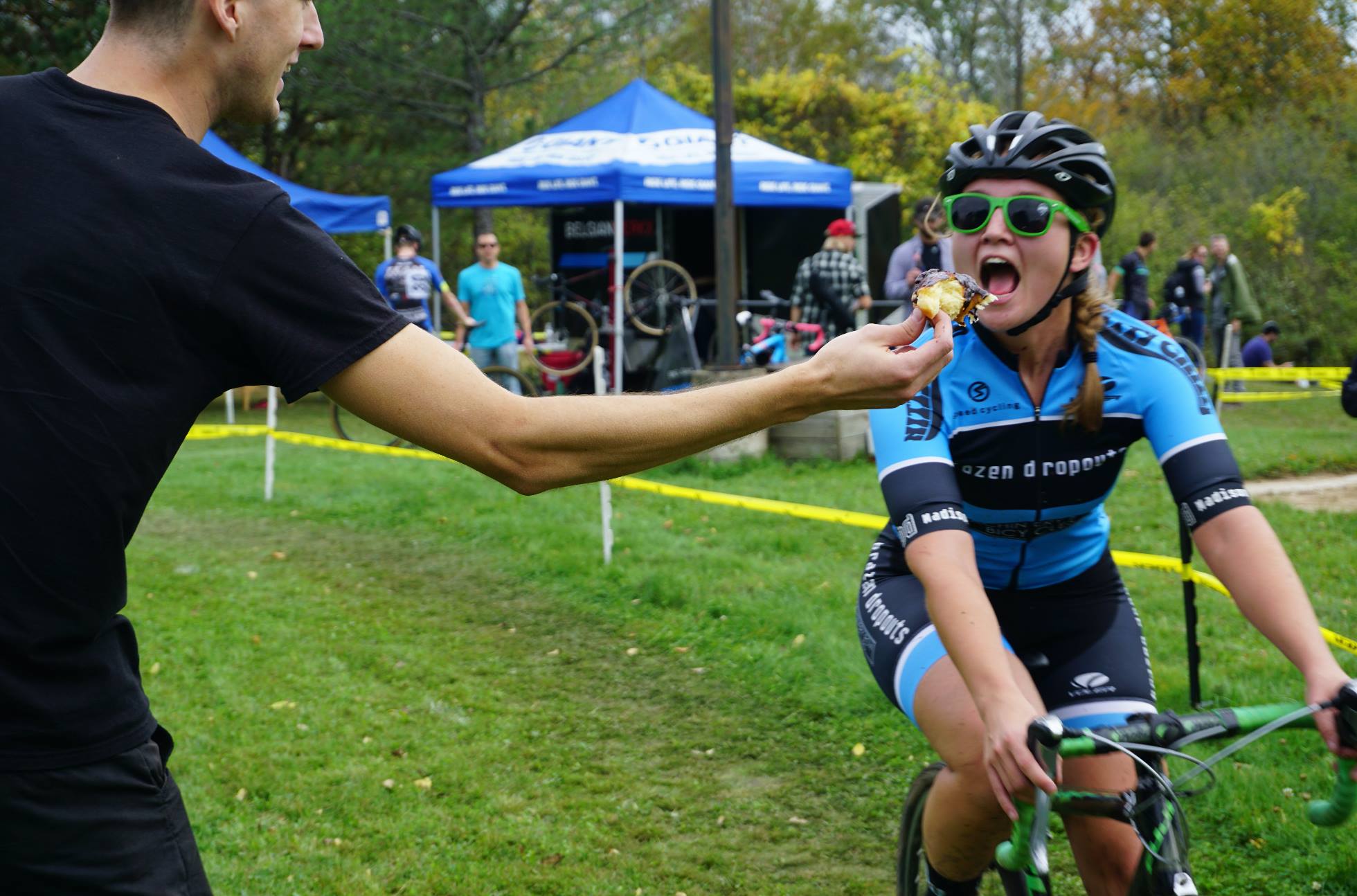
Cope's first CX experience nearly abbreviated her career.
"My first time really riding the cross bike was when Isaac Neff's CX practice went to the Trek CX Cup course ahead of that race," she noted. "This was my teammates' idea but was a bad idea! While I had a pretty good time, there were parts of that course that really freaked me out and made me wonder what I was getting into. I know now that descending Factory Hill isn't a good first-day activity."
Thankfully she persevered.
"After that practice, my first race was Pumpkincross 2016. I was extremely nervous, but my teammates were gracious and answered all of my nervous questions," she said. "After the starting line though, I just realized it was really fun. I placed somewhere in the top half so I knew I wasn't terrible at it, and everyone who I talked to about it was so excited for me.
"And there aren't usually beer tents at road races so that was cool!"
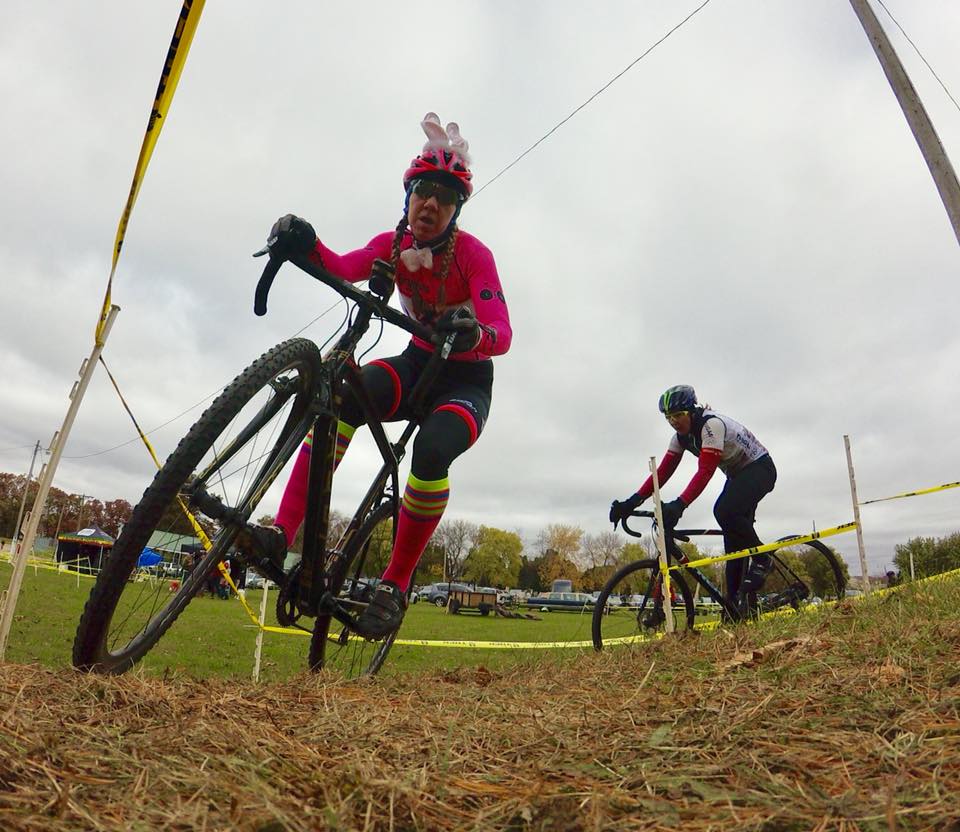
Julie Phelps, who is based out of the Green Bay area, took her time going from spectator to competitor, but once the switch was flipped, she was hooked.
"I actually started racing cross after some prodding," she said. "[My husband] Nate tried to get me to race for a year or two. Everyone told me I should race cross because I love to run and bike and cross involves both. I really enjoyed being a spectator for about two years, but I'm competitive by nature and I decided I would have more fun racing than watching.
"My first cross race was in the rain and mud and it was ridiculous. And I really liked it."
Since then Phelps has been racing nearly every weekend during the season, though she still holds on to her previous identity: "I am still a runner and I always say I'm just a runner trying to bike race! I love it, though – it's a blast."
Achievement and injury
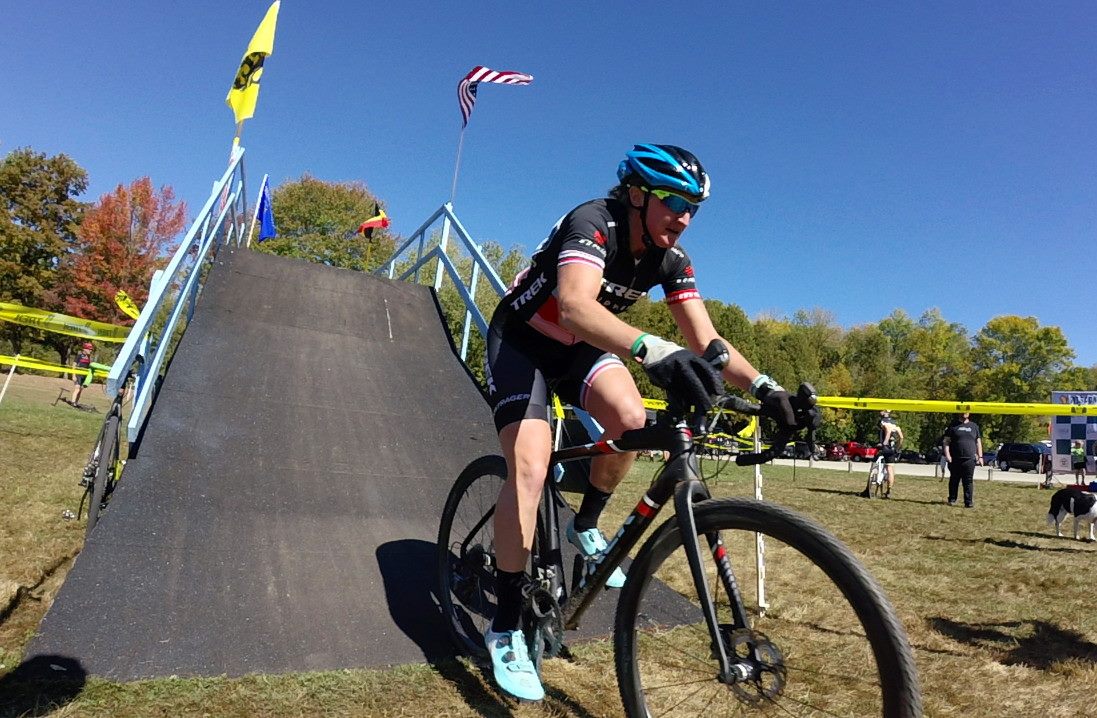
Erin Feldhausen, who is based out of Madison, has been a familiar face at the races for nearly a decade – and almost equally familiar at the top of the podium.
"I stumbled across a cyclocross race in 2008 at Kletsch Park and had never seen it before," she recalled. "The next year I decided to do it at the last minute, without having ever done a cyclocross race. The fact that I had only tried dismounting my mountain bike once before didn't seem to matter, because it was a beautiful 60 degree November day. My mountain bike is a piece of crap, so I asked a friend if I could borrow his sweet new cross bike and shoes – yeah, we wear the same size – and I jumped in the race. Super fun!
"I raced in the Cat 4 (entry-level) race but couldn't really tell what my position was because, one, I had no idea what I was doing; two, I was trying to figure out how to get my feet in and out of his SPD pedals – which I'd never used before. And three, there were a bunch of juniors mixed in.
"I finished the race – intense! – and was talking to one of the girls who informed me that I had actually won. I didn't believe her until they did the awards. Crazy. I caught the bug and thought the whole event was awesome!"
Feldhausen, however, has been recovering from an injury this year.
"I'm a competitor," she explained. "I'm used to filling my weekends with events and have done up to 40-plus events a year back in the day. Much of the practice I did this year was really focusing on a repeat 'cross performance of last year, racing for a new national team, Trek Cyclocross Collective, on a new Trek Boone – which showed up the day after the bike crash – and a goal of racing Nationals in Louisville."
It was a plan that would not come to fruition after Feldhausen crashed on a road ride and sustained a compression fracture in her spine. Unable to compete until healed, she's been finding other ways to be a part of the culture.
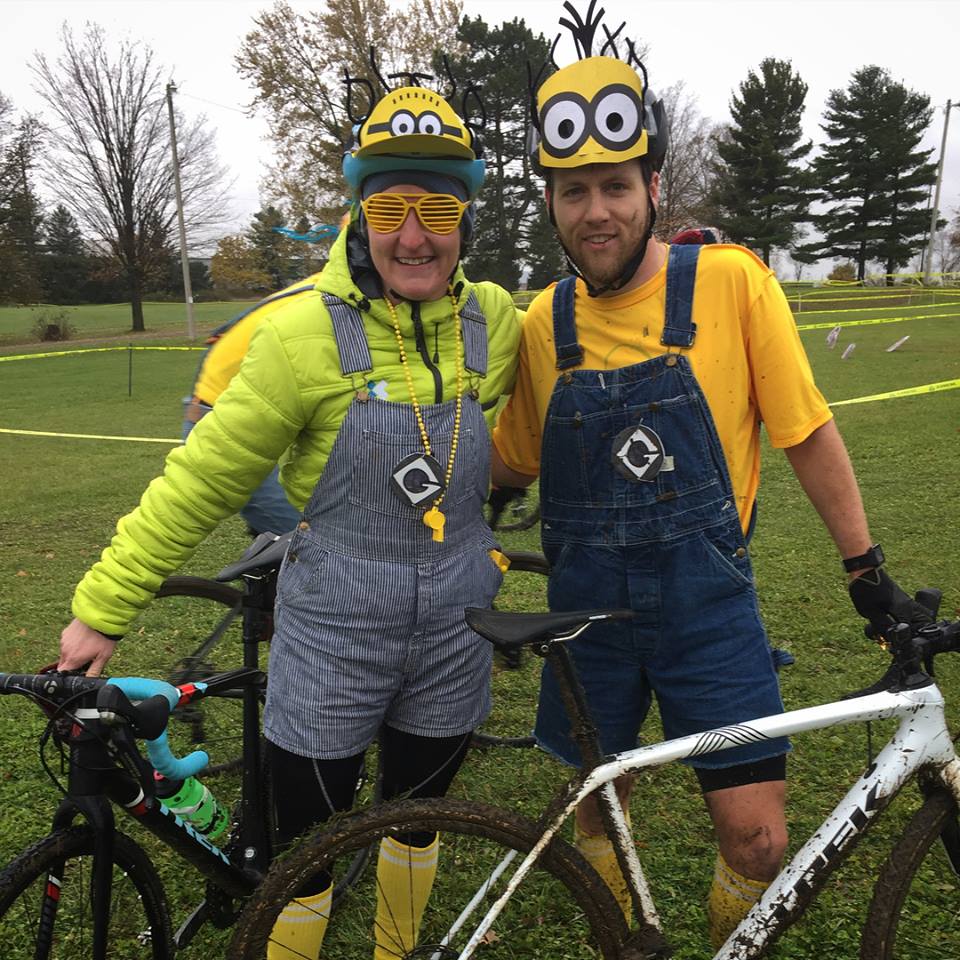
"The employee culture at Trek is extremely energetic around cyclocross, and it's become something I've fallen in love with," she said. "Being on the WCA Cyclocross committee, being involved with volunteering at Trek CX Cup and spectating almost weekly has kept me involved and helped satisfy a little bit of the thirst – like maybe just dribbles on the tongue – but has really made me eager to get back on the other side of the tape."
Where's the fun in suffering?
Amateur cyclocross racing lasts between 30 minutes and an hour – which roughly translates to between 3 to 7 laps, or 5 to 15 miles. But what it lacks in duration, it makes up with intensity. The race is as much a physical endeavor as a mental battle. Competitors fight to close gaps on the person ahead of them while simultaneously praying they get lapped so they can end the race early.
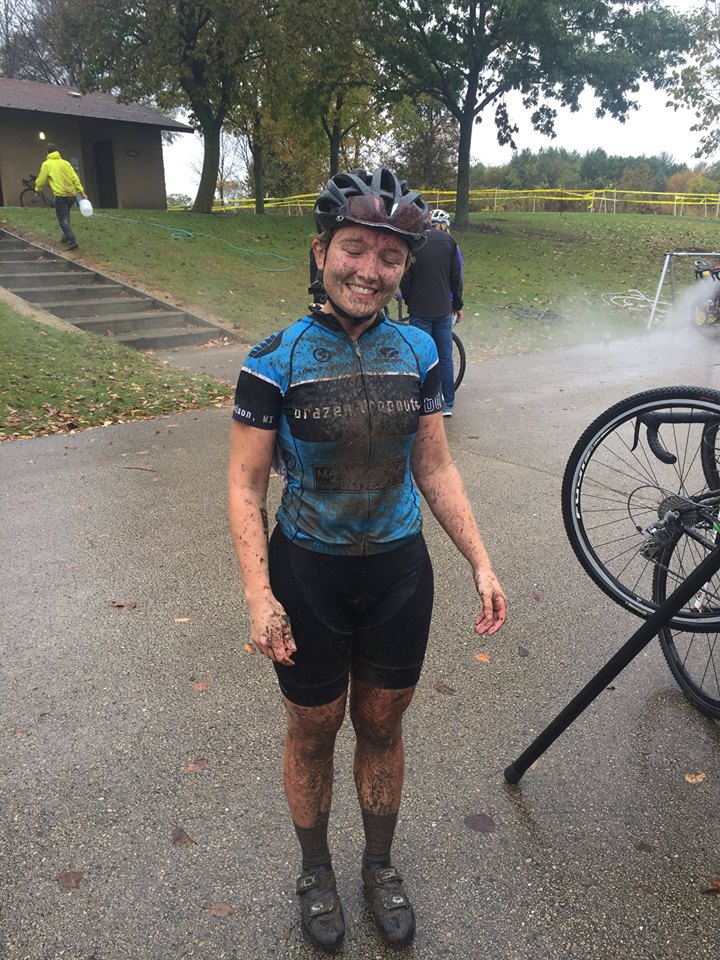
(PHOTO: Brazen Dropouts Cycling Team)
When Cope is in the middle of no man's land and caps off a lap, she says, "(I can't help but think), 'Wow, that's a lot of laps left!' If it's going poorly I'm also thinking, 'I hope Abby or April or somebody laps me soon so I can do one less lap.'
"But if I'm in a battle with someone or feeling good, I'm thinking, 'Smooth is fast' and trying to figure out good places on the course to gain time."
The feelings are familiar to Franczyk: "Oh my god, I'm going to die. I can't do this. Holy sh*t. My legs are going to fall off. Why am I doing this? Why did I PAY to do this? My lungs are going to collapse. Keep going. Keep moving forward. You can do this."
But once she makes it through the other side, she keeps coming back.
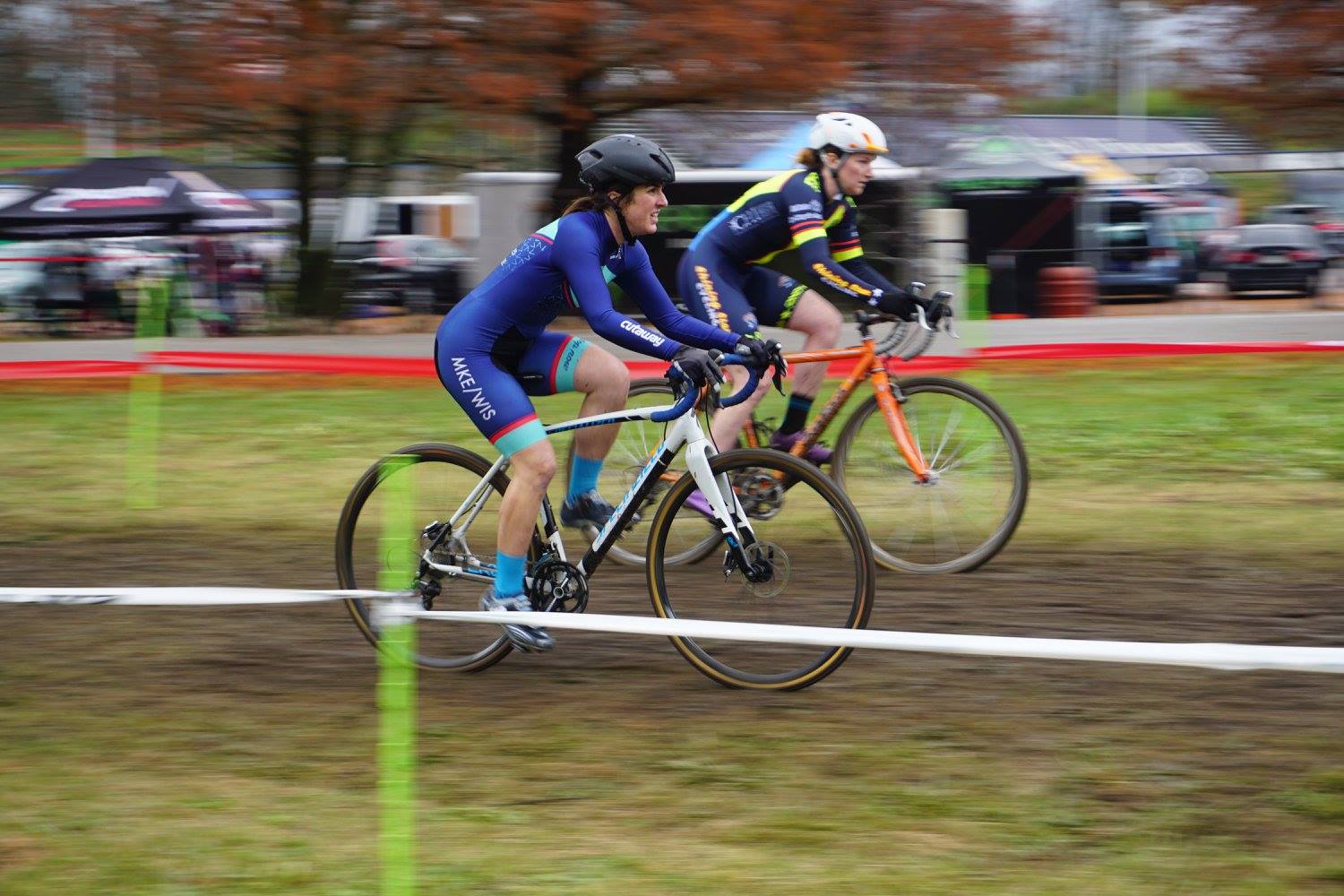
"Last season I raced every weekend in the fall, doubling up most weekends by doing the Wisconsin races on Saturday and Chicago area races on Sunday," she said. "I told myself this season I wouldn't do that again, that it was taking up too much time and I wasn't able to do other stuff. But that hasn't happened at all. I love it too much not to race. It's an unbelievable feeling to push your body far past its limits for 45 minutes (or whatever the length of your race is) surrounded by super rad, supportive people."
Phelps appreciates the direct correlation that your work reaps rewards.
"I like that you have to work your ass off and most often your result is because of how hard you work," she said. "It's not like a road race where someone can just draft off of you the whole race and then out sprint you at the end. I like that it's an all out effort and the harder you work the better you do."
A warm welcome
Despite the intense competition on the course, the cross scene has an inviting and at times, party-like atmosphere. "I think the compact courses encourage people to hang out and cheer for each other," suggested Cope.
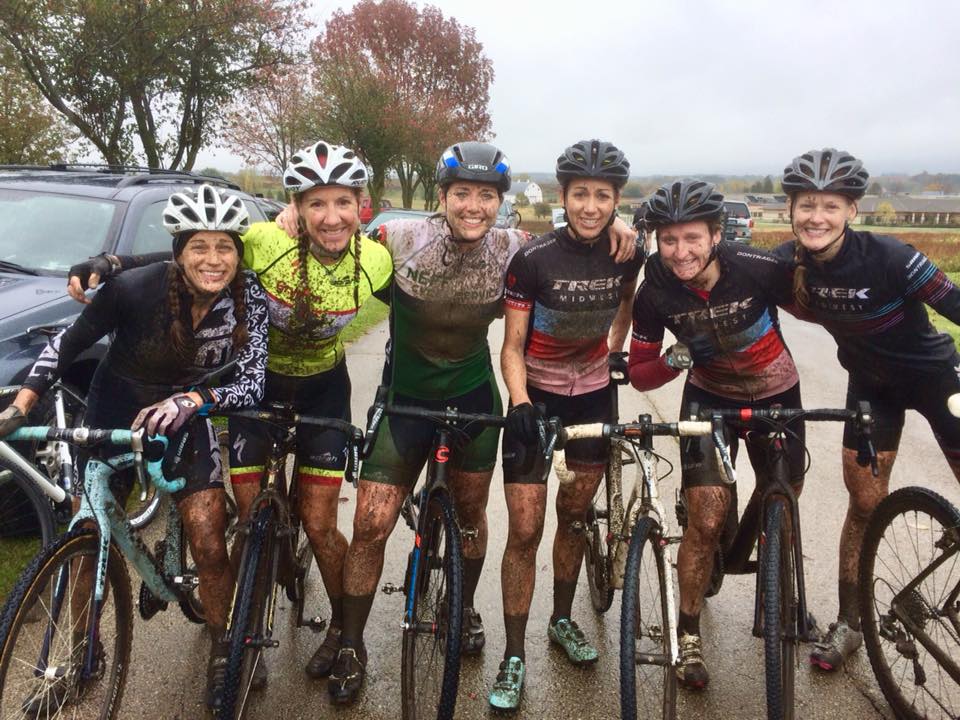
(PHOTO: Nathan Phelps)
Or maybe it's more intrinsic, as Franczyk believes.
"I think we are all competitive and maybe a bit masochistic," she noted. "But we also don't care about getting dirty, taking fun heckles, grabbing a gummy worm hand up or taking a shot of whiskey in the middle of the race. I think it's a perfect balance of legit physical and mental challenge and just having the most fun ever.
"When you put all those people together, it creates a really beautiful thing."
You can save $10 by pre-registering for GP Jo Van Deraffe by Wednesday, Nov. 14, or register the day of the event on Nov. 17.
Jason McDowell grew up in central Iowa and moved to Milwaukee in 2000 to attend the Milwaukee Institute of Art and Design.
In 2006 he began working with OnMilwaukee as an advertising designer, but has since taken on a variety of rolls as the Creative Director, tackling all kinds of design problems, from digital to print, advertising to branding, icons to programming.
In 2016 he picked up the 414 Digital Star of the Year award.
Most other times he can be found racing bicycles, playing board games, or petting dogs.

